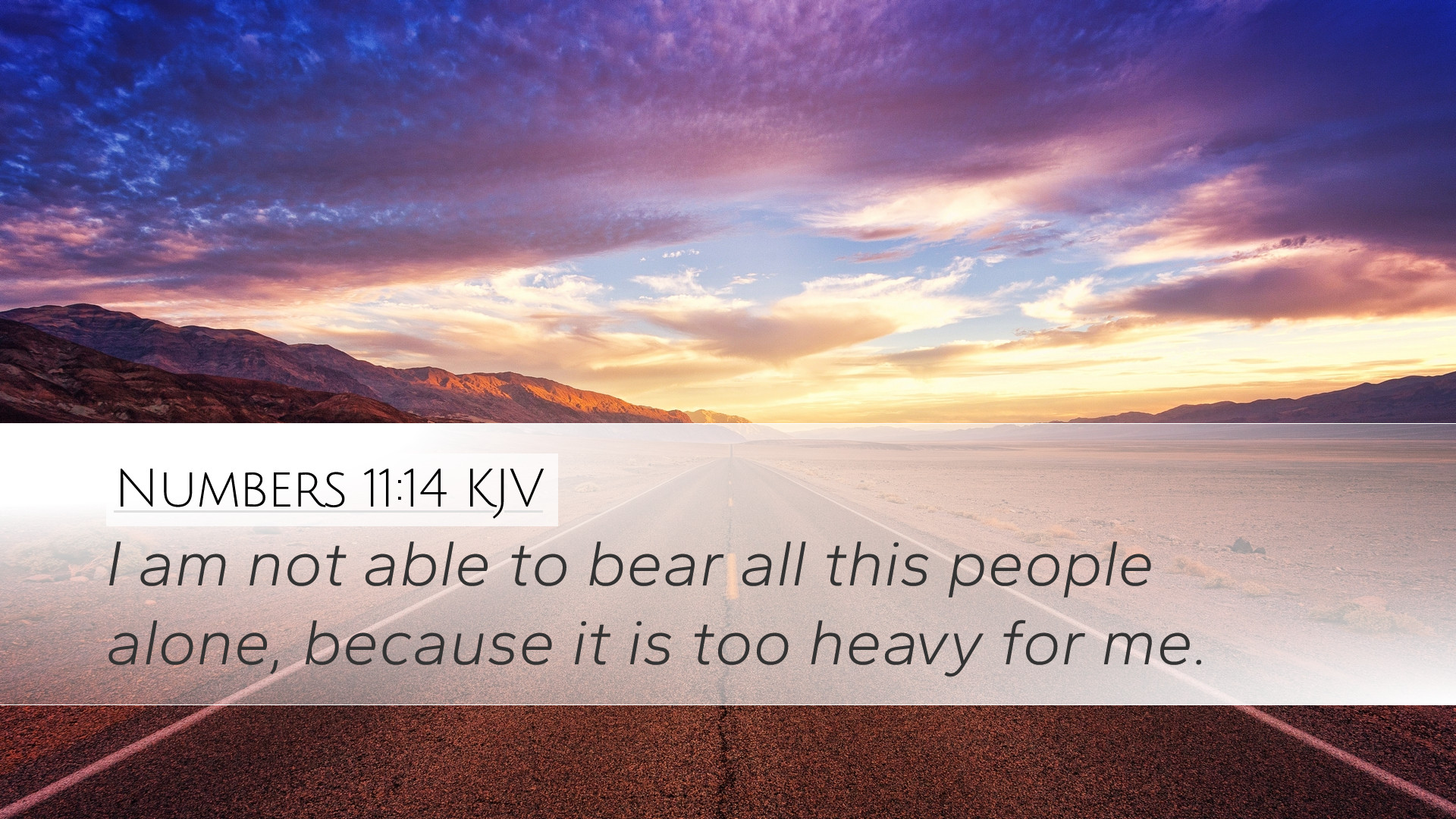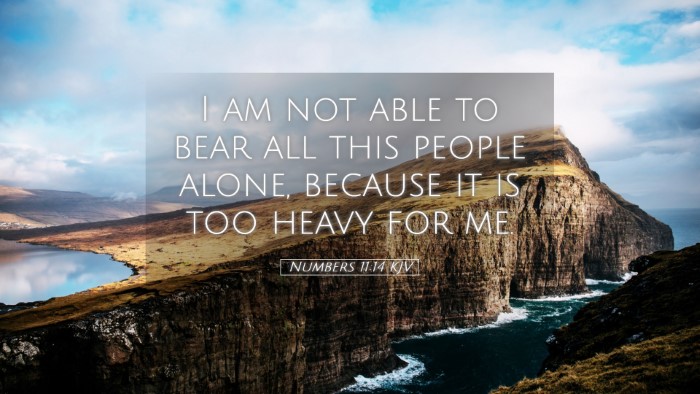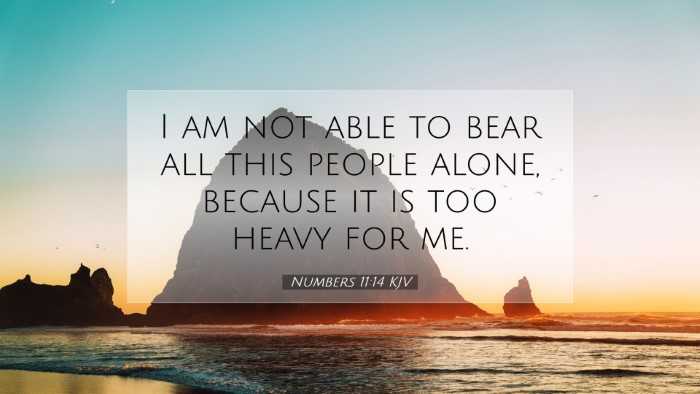Commentary on Numbers 11:14
Verse: "I am not able to bear all this people alone, because it is too heavy for me."
Introduction
The verse in Numbers 11:14 reveals a critical moment in the leadership of Moses, highlighting both his vulnerability and the burden of leadership. This discussion revolves around the implications of Moses' admission of inadequacy and the theological significance it carries. By examining various public domain commentaries, we will explore the depths of this passage for a better understanding of its spiritual and practical lessons.
Moses’ Burden
Moses, the great leader of Israel, finds himself overwhelmed by the demands of the people. His declaration that he cannot bear them alone underscores a pivotal theme in Scripture: the weight of leadership. Here, we see Moses as a relatable figure, struggling under the burdens that come with guiding a large congregation. Matthew Henry notes his humility and recognition of his limitations, which serves as a reminder that even the most faithful leaders have their breaking points.
Insights from Matthew Henry
Leadership's Weight: Henry emphasizes the immense weight of leadership, especially in a spiritual context. He observes that Moses' admission reflects a natural reaction to overwhelming circumstances. Those in leadership are often tasked with bearing the burden of others, requiring not only emotional resilience but also divine assistance.
Albert Barnes on Community Dynamics
Community Challenges: Barnes delves into the complexity of community dynamics, particularly among a large group like the Israelites. He highlights how the collective grievances and desires of the people can create strain on their leaders. Barnes notes that Moses’ struggle is indicative of the trials faced by many in positions of authority, offering wisdom regarding the support structures needed for effective leadership.
Theological Implications
The admission by Moses leads us to ponder profound theological truths about God’s design for leadership and community. It reinforces the idea that as humans, we are inherently limited and need divine help in understanding and fulfilling our responsibilities.
Insights from Adam Clarke
Dependence on God: Clarke draws attention to the necessity of relying upon God’s strength. Moses’ plea is not merely an expression of frustration but a significant acknowledgment of human frailty. Clarke points out that dependability on God is what enables leaders to rise above their limitations. In this context, Clarke’s commentary encourages believers to seek divine empowerment in the face of overwhelming circumstances.
Practical Applications
For pastors, students, and theologians, the lesson from Numbers 11:14 is twofold: it exemplifies the need for humility and the acceptance of one’s limits while recognizing God’s overarching provision. The following applications can be drawn:
- Humility in Leadership: Recognizing that leaders are not infallible encourages a culture of openness and authenticity within the church.
- The Necessity of Support: This passage serves as a call for church communities to support their leaders, fostering an environment where burdens are shared.
- Call to Prayer and Seeking God: The acknowledgment of personal limits should lead to a deeper reliance on prayer and the seeking of divine wisdom and strength.
Conclusion
In summary, Numbers 11:14 presents a powerful insight into the human condition, focusing on leadership’s burdens and the divine assistance required to carry them. Through the lens of esteemed commentaries, one can appreciate the depth of Moses' plea as not only a personal lament but as a broader theological principle applicable to all believers. May this verse remind us of the importance of community, the need for divine support, and the profound truth that in our weakest moments, we are called to seek the strength of our God.


